Anthony Albanese’s security pact with Tuvalu ‘at risk’
Anthony Albanese’s security pact with Tuvalu is on shaky ground following the fall of the country’s prime minister, and may not survive in its current form.
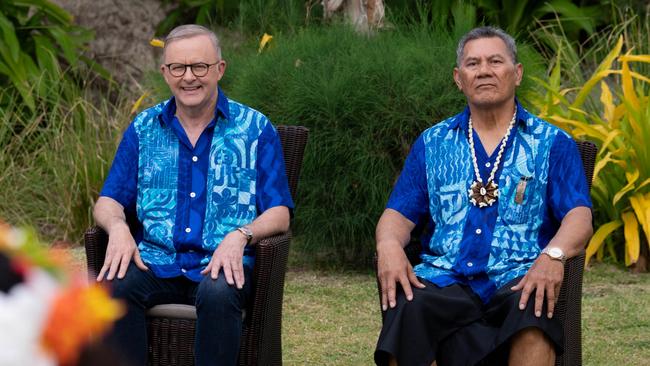
Anthony Albanese’s much-vaunted “Falepili Union” security pact with Tuvalu is on shaky ground following the fall of the country’s prime minister, and may not survive in its current form.
Kausea Natano, who negotiated the security and climate change treaty with Australia, lost his seat in counting over the weekend in the country’s general election.
Those lining up to replace him want the agreement renegotiated or scrapped, while the country’s diplomatic relationship with Taiwan also hangs in the balance.
The expected diplomatic blow to Australia comes amid uncertainty over the nation’s security pact with Vanuatu, and Nauru’s decision this month to switch diplomatic recognition from Taiwan to China.
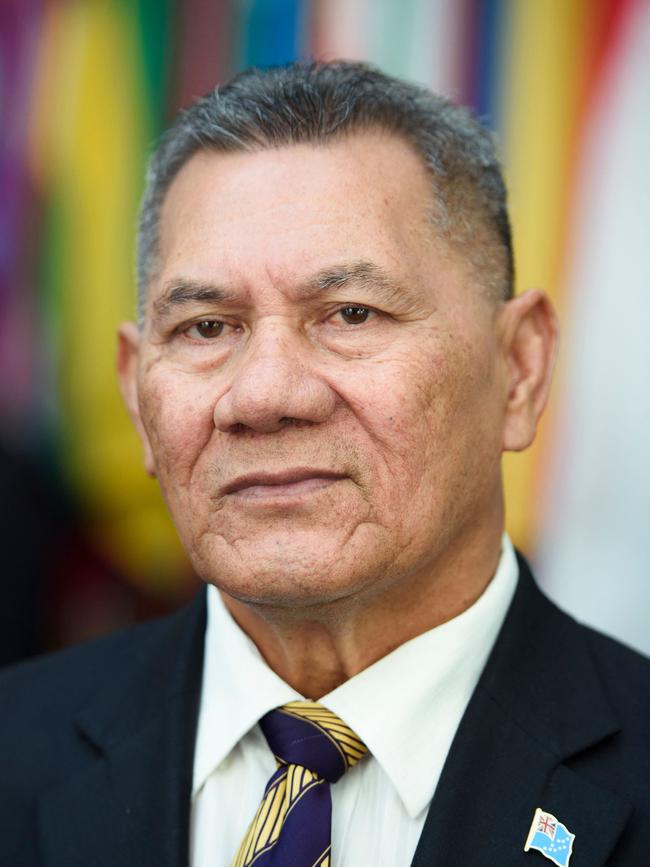
The Prime Minister framed the Falepili Union as a diplomatic coup, saying it was “without doubt the most significant agreement between Australia and a Pacific island nation”.
The yet-to-be-ratified pact would allow Tuvalu’s entire population to resettle in Australia if rising seas claim its islands, while handing Australia a veto over the country’s future security relationships in a blow to Beijing.
Minister for the Pacific Pat Conroy congratulated Tuvalu on its successful election, declaring: “I look forward to deepening our partnership as we work together to implement the Falepili Union.”
Congratulations to Tuvalu on its successful election.
— Pat Conroy MP (@PatConroy1) January 27, 2024
It was a pleasure to visit beautiful Tuvalu in August last year.
I look forward to deepening our partnership as we work together to implement the Falepili Union.@dfat@SenatorWong
But California State University assistant professor Jess Marinaccio, who has worked for Tuvalu’s government, said the agreement was likely to be re-examined no matter who became prime minister.
Re-elected former prime minister Enele Sopoaga, who is eyeing a return to the post, has opposed the agreement, arguing it should be put to a referendum before it is ratified by Tuvalu.
Other returned MPs, including prime ministerial aspirant Seve Paeniu, were more supportive, but likely to require changes to the agreement’s security provisions, Professor Marinaccio said.
“I don’t think anybody really had read the agreement closely before it was brought up in parliament,” she said.
The country’s 16-member parliament debated the pact in a four-day session last November, focusing on a provision requiring Australia to consent to any future defence and security relationships between Tuvalu and another state.
“That was the article that most people were really worried about,” Professor Marinaccio said. “It doesn’t say ‘in the event of an emergency’. It basically says that in any case, Tuvalu has to mutually agree with Australia on its defence and security arrangements, and that includes security over things like telecommunications.
“Most MPs were saying ‘that needs to be changed’. It’s even more extreme than some of the compacts of free associations that the United States has (with Micronesian countries).”
Former Tuvalu foreign minister Simon Kofe raised serious concerns over the pact, warning it was unwise for the country of just over 11,000 people to insert itself in the strategic contest between China and the West.
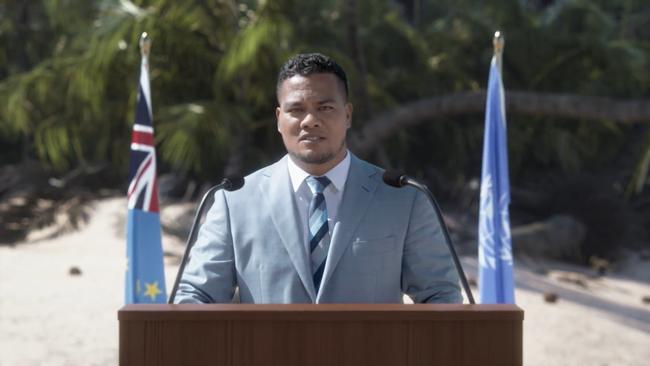
Eight newcomers will take their seats in the new parliament, including former governor-general Sir Iakoba Italeli Taeia.
Tuvalu has no political parties, and it will take a week or more for a new prime minister to be appointed.
Mihai Sora, a research fellow in the Lowy Institute’s Pacific program, said “everything” would be up for renegotiation as the new government considered what it could leverage from its international partners.
“Tuvalu’s political figures clearly know the value of this sort of arrangement, and for a country like Tuvalu, sovereignty is one of its assets,” he said.
“Negotiating access to that for a country like Australia is a huge bargaining chip for Tuvalu.
“So, I would expect it would be reopened (for negotiation). It doesn’t mean that it’s going to be rebuilt from the ground up, or that the gains that the two sides made are totally thrown out the window. But you can imagine a new government looking to extract more benefits for Tuvalu.”
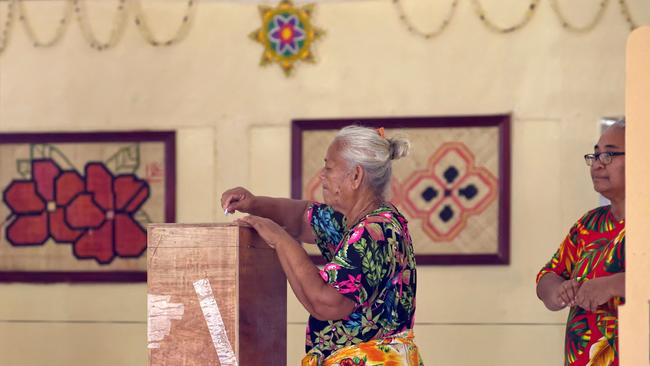
Mr Sora said the situation underlined the difficulties in making such agreements in the increasingly contested Pacific.
He pointed to the Albanese government’s unratified security agreement with Vanuatu, which was used as “political fodder” to topple the country’s prime minister.
Australia’s hoped-for security treaty with Papua New Guinea was also downgraded after its Prime Minister, James Marape, suffered political blowback over a similar deal with the US.
The fall of Tuvalu’s pro-Taiwan prime minister has sparked speculation that the country could follow Nauru in cutting ties with Taipei.
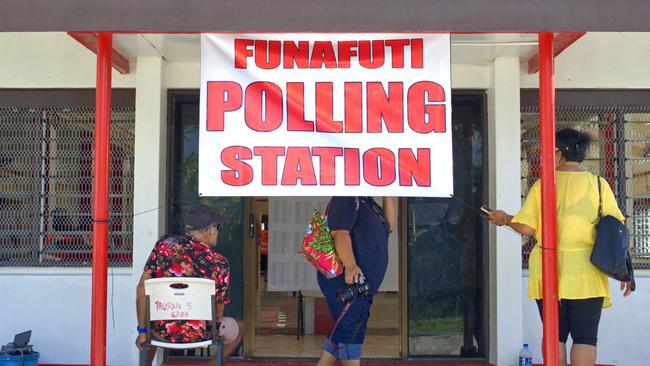
Mr Paeniu, who has declared himself a candidate for the prime ministership, said ahead of the election that the future of diplomatic relations with Taiwan should be examined.
“The Taiwan-China issue remains a debatable issue for any government, particularly following a general election. No doubt it will feature once again in the debates following the election and the new government will need to take a stance on it,” Mr Paeniu said.
Taiwan said it was confident the next Tuvaluan government would maintain diplomatic relations.
A week before the election, Tuvalu’s ambassador to Taiwan, Bikenibeu Paeniu, said that Beijing had been trying to influence the country’s politicians since a failed attempt to secure a switch ahead of the 2019 election.

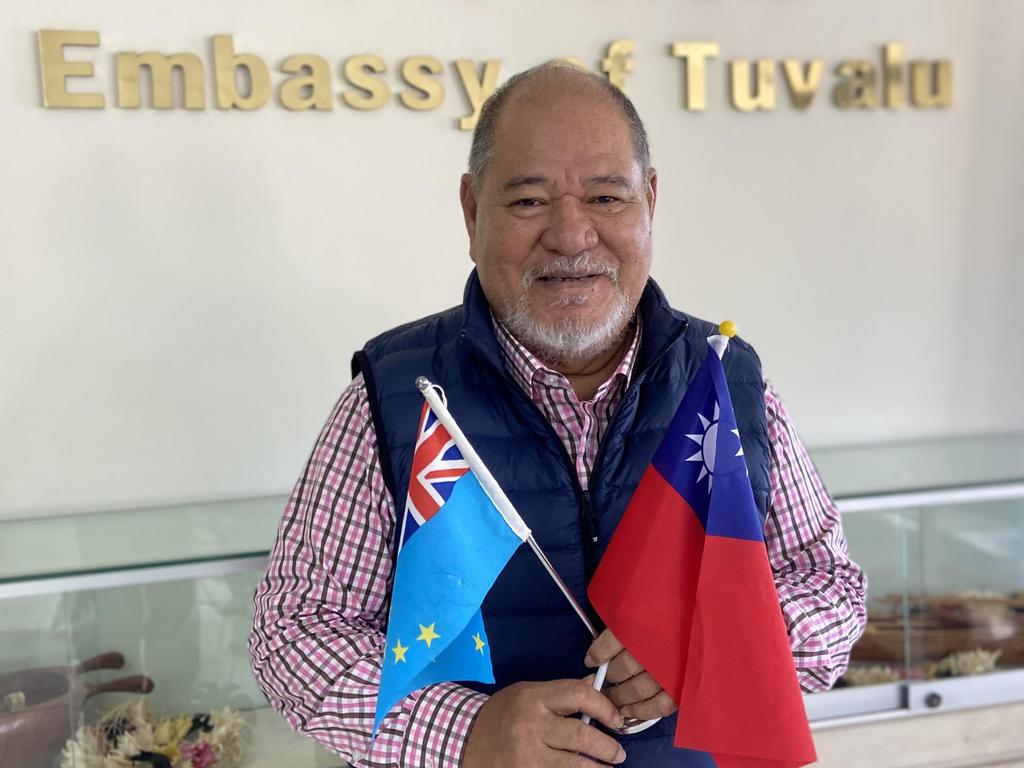
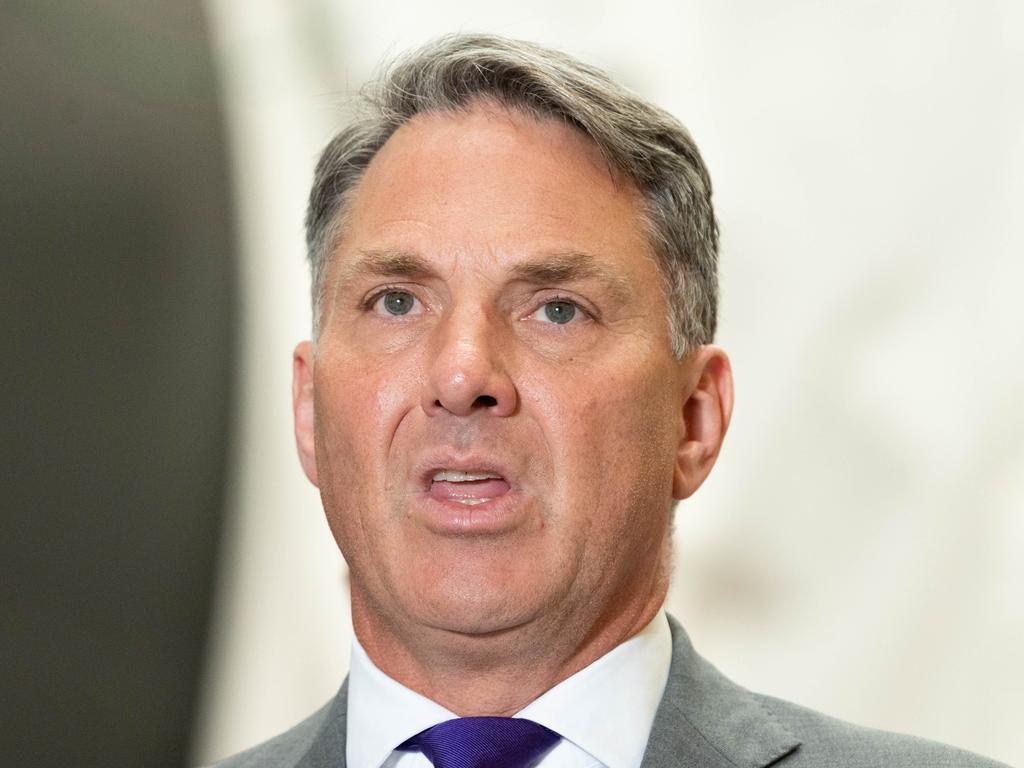
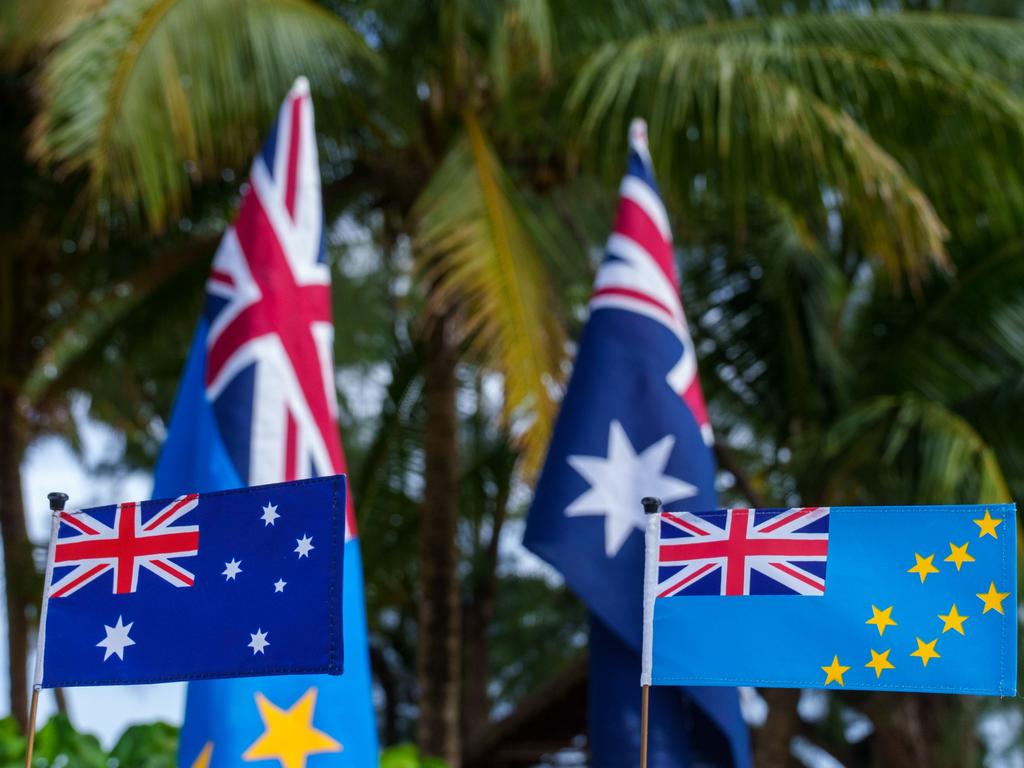
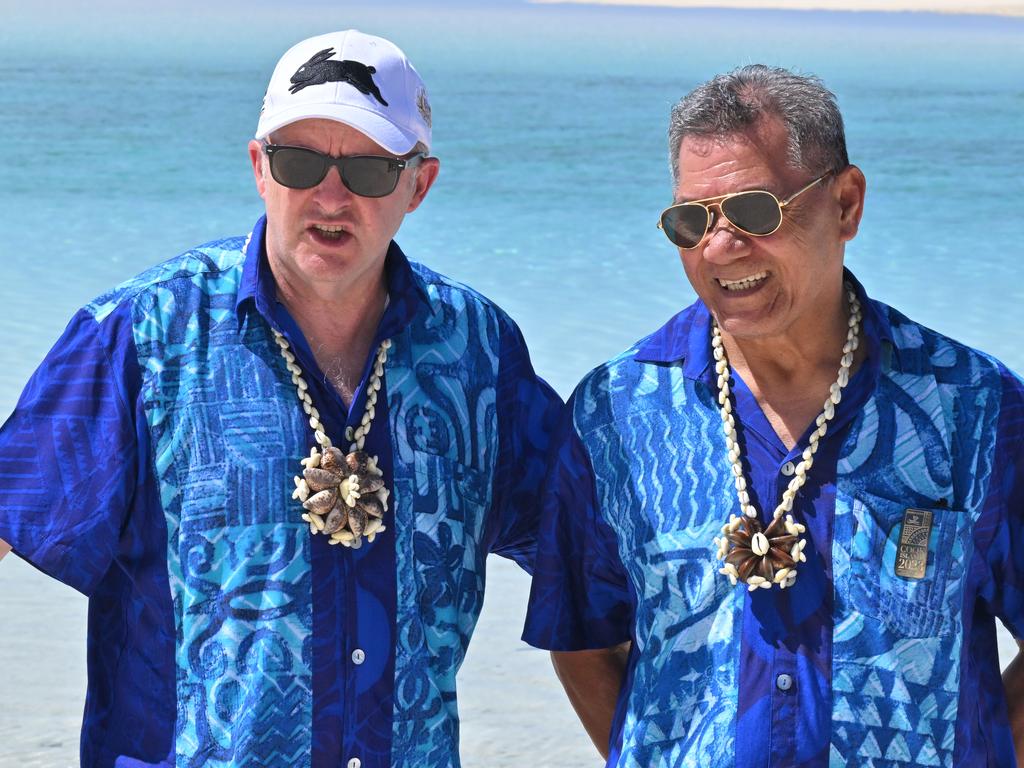


To join the conversation, please log in. Don't have an account? Register
Join the conversation, you are commenting as Logout